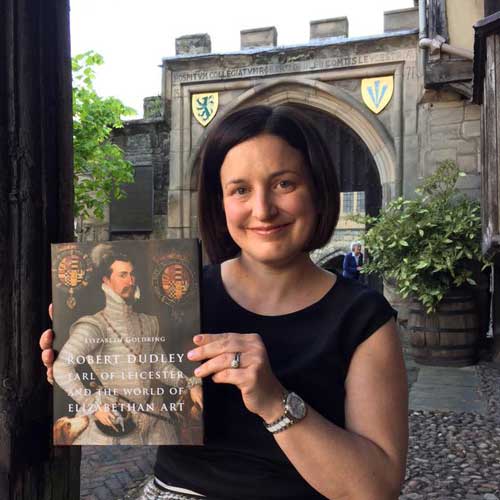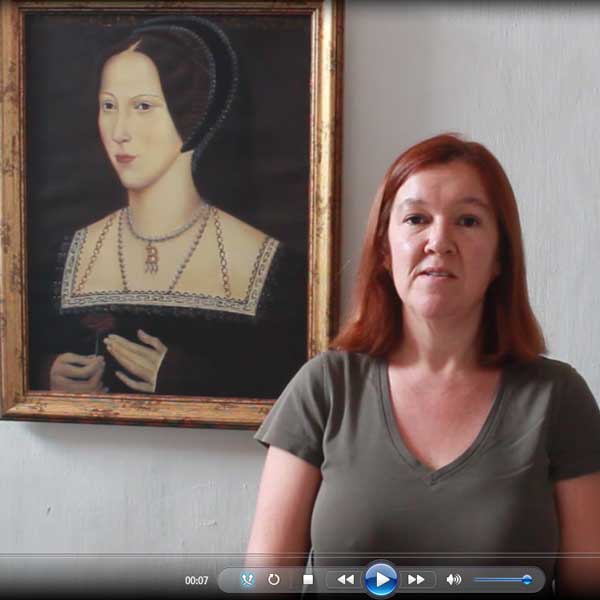This month, historian Gareth Russell gives us a wonderful insight into the role of Importance of Christianity in the Medieval and Early Modern Period. As always, Gareth is charming and insightful with his examination of this important subject.
- You are here :
- The Tudor Society
- /Expert Talks /
- Expert Talk: Gareth Russell – The Importance of Christianity
There are 6 comments Go To Comment
Leave a Reply Cancel Reply
Recently Viewed Posts
Latest Content
- The Darker Side of Elizabeth I’s Reign: Was it Really a Golden Age?
- Arthur Bulkeley, Bishop of Bangor
- Richard Burbage, the Elizabethan actor
- Pope Leo X – The Medici Pope
- William Paulet, 1st Marquess of Winchester, a Tudor Survivor
- The Downfall of Germain Gardiner, John Larke & the Prebendaries’ Plot
- Thomas Wriothesley’s Fall
- Innovation and Panic at the Siege of Antwerp 1584-5 by Loretta Goldberg
- Mathematician and Inventor William Oughtred
Categories
- Expert Talks (106)
- Feast Days (71)
- Friday Videos (380)
- Guest Articles (27)
- Magazines (94)
- Monday Martyrs (24)
- News (435)
- On this day (2,025)
- Places (52)
- Public (570)
- Quizzes (427)
- Resources (199)
- Audios (27)
- Battles and Rebellions (43)
- Daily Life (2)
- Documentaries (15)
- Expert answers (31)
- Family Trees (3)
- Primary Sources (54)
- Recommended Reading (15)
- This Week in History (427)
- Transcripts (80)
- Tudor People (301)
- Explorers (13)
- Martyrs (64)
- Monarchs (29)
- Six Wives (14)
- The King's Men (42)
- The Queen's Men (12)
- Tudor and Renaissance Artists and Composers (9)
- Tudor Churchmen (18)
- Tudor Men (81)
- Tudor Poets and Playwrights (25)
- Tudor Women (57)
- Tudor Times (54)
Archives
- April 2025
- March 2025
- February 2025
- January 2025
- December 2024
- November 2024
- October 2024
- September 2024
- August 2024
- July 2024
- June 2024
- May 2024
- April 2024
- March 2024
- February 2024
- January 2024
- December 2023
- October 2023
- September 2023
- August 2023
- July 2023
- June 2023
- May 2023
- April 2023
- March 2023
- February 2023
- January 2023
- December 2022
- November 2022
- October 2022
- September 2022
- August 2022
- July 2022
- June 2022
- May 2022
- April 2022
- March 2022
- February 2022
- January 2022
- December 2021
- November 2021
- October 2021
- September 2021
- August 2021
- July 2021
- June 2021
- May 2021
- April 2021
- March 2021
- February 2021
- January 2021
- December 2020
- November 2020
- October 2020
- September 2020
- August 2020
- July 2020
- June 2020
- May 2020
- April 2020
- March 2020
- February 2020
- January 2020
- December 2019
- November 2019
- October 2019
- September 2019
- August 2019
- July 2019
- June 2019
- May 2019
- April 2019
- March 2019
- February 2019
- January 2019
- December 2018
- November 2018
- October 2018
- September 2018
- August 2018
- July 2018
- June 2018
- May 2018
- April 2018
- March 2018
- February 2018
- January 2018
- December 2017
- November 2017
- October 2017
- September 2017
- August 2017
- July 2017
- June 2017
- May 2017
- April 2017
- March 2017
- February 2017
- January 2017
- December 2016
- November 2016
- October 2016
- September 2016
- August 2016
- July 2016
- June 2016
- May 2016
- April 2016
- March 2016
- February 2016
- January 2016
- December 2015
- November 2015
- October 2015
- September 2015
- August 2015
- July 2015
- June 2015
- May 2015
- April 2015
- March 2015
- February 2015
- January 2015
- December 2014
- November 2014
- October 2014
- September 2014
- August 2014



Delighted by Gareth’s talk. What he shared so needs saying. The centrality of Christianity in the Tudor century should not be airbrushed out of any account of those turbulent years. Any novelist or dramatist who doesn’t understand the central tenets of the faith shouldn’t be writing about a religious age. The reason is sometimes advanced that we have to soft-pedal the religious aspects because we are writing for a secular audience who won’t understand the nuances of Catholic-Protestant conflict. Hogwash! The challenge for us is not to rewrite history to make it more accessible, but to do our research thoroughly so that, whether or not we have a religious commitment, we can get alongside the 16 th. C, people who did. In that way we stand some chance of bringing the period to life. That, I believe, is what intelligent readers – like members of the Tudor Society – expect of us. As Gareth says, we owe it to our ancestors to represent them as accurately as we can. We also owe it to our readers/viewers not to patronise them with stories of modern heroes and heroines strutting about in period costume. And, I’ll go a step further: we owe it to that subject we all love, value and believe to be important – History.
To say I agree completely is putting it mildly!
Outstanding analysis!!!
Thank you so very much Derek, Clare and Beth – I’m so glad you enjoyed it. It’s a topic I feel so strongly about, which I think makes the study of History more enjoyable, more challenging and more honest.
Thanks so much Gareth. Interesting talk. I have always felt that ,Anne Boleyn saw herself that way. Can you imagine how very betrayed she felt by God in His not giving her a living son ? I also don’t think people always understand ” separation of church and state “. Your religion and your politics were, a lot of time the same thing. Enjoyed it xoxo
I have only found this wonderful talk because I was reading the article on Martin Luther 500 and this is very true in relation to how he was shown. We cannot understand Luther or anyone from the fifteenth century or sixteenth century without understanding the daily piety of ordinary late Medieval Catholic traditional teachings. It is unrealistic to show Luther or Anne Boleyn or anyone else as a radical Protestant for example because they were not. Luther was stunned and appalled at the extreme destructive power his protest and writing gave to the more violent elements of society who took up the call to arms in order to demand change and freedom in Germany. He may have himself have written with vile and abuse, but he was not a man of violence. Yet he couldn’t stop others from using his words in this way. Nor had he intended a breach with the church, this was a response to his excommunication.
We have to understand in any writing about the past how religious devotion governed every aspect of life. Just read a will or two and the devotion of the dying human being is clear. I think some authors are actually afraid that they will offend somebody by even admitting Christianity had a positive and real influence across Europe and other parts of the world. We have to be authentic. We have to show people in a respectful way. I completely agree, you need to understand what religious life was like and the meaning of every system of belief and how varied it was. No one school of thought or act of devotion existed in some areas, but many different expressions of faith. An example can be found in the area around Mansfield where Luther’s family came from where several charismatic groups popped up in the late fifteenth century, all within the accepted form of the Catholic Faith and all without any problems. When we talk about reforming the church and the small groups of reformers in England, we have to remember that they represented many different ideas and were not Protestant. Many orthodox Catholic thinkers were interested in reform, without leaping out of the Catholic Church. However, the majority of people didn’t want to be ‘reformed’ but to hold onto their long held beloved customs and acts of charity and devotion. They wanted pilgrimage, they wanted the Mass and the Rosary and couldn’t care less what language the Bible was in. They wanted what was comfortable and familiar. If we don’t get that or present this in our writing, then perhaps we should indeed leave the writing to others. The same can be said with the less beautiful aspects of faith at this time, the ruthless methods the Government authorities, on all sides put down what they called heresy or in the case of Catholic martyrs, sedition and treason. The ruthless attitudes may not rest easy with our idea of Christianity, but in many ways it was a normal way of thinking and it is not up to us as modern historians to rationalize it, condemn it or exaggerate it. It should simply be placed within an authentic, well researched historical reality. It is almost impossible to get into the mindset of the past, but it can be done if we read their own words and allow the people of the past to speak with their own voice.